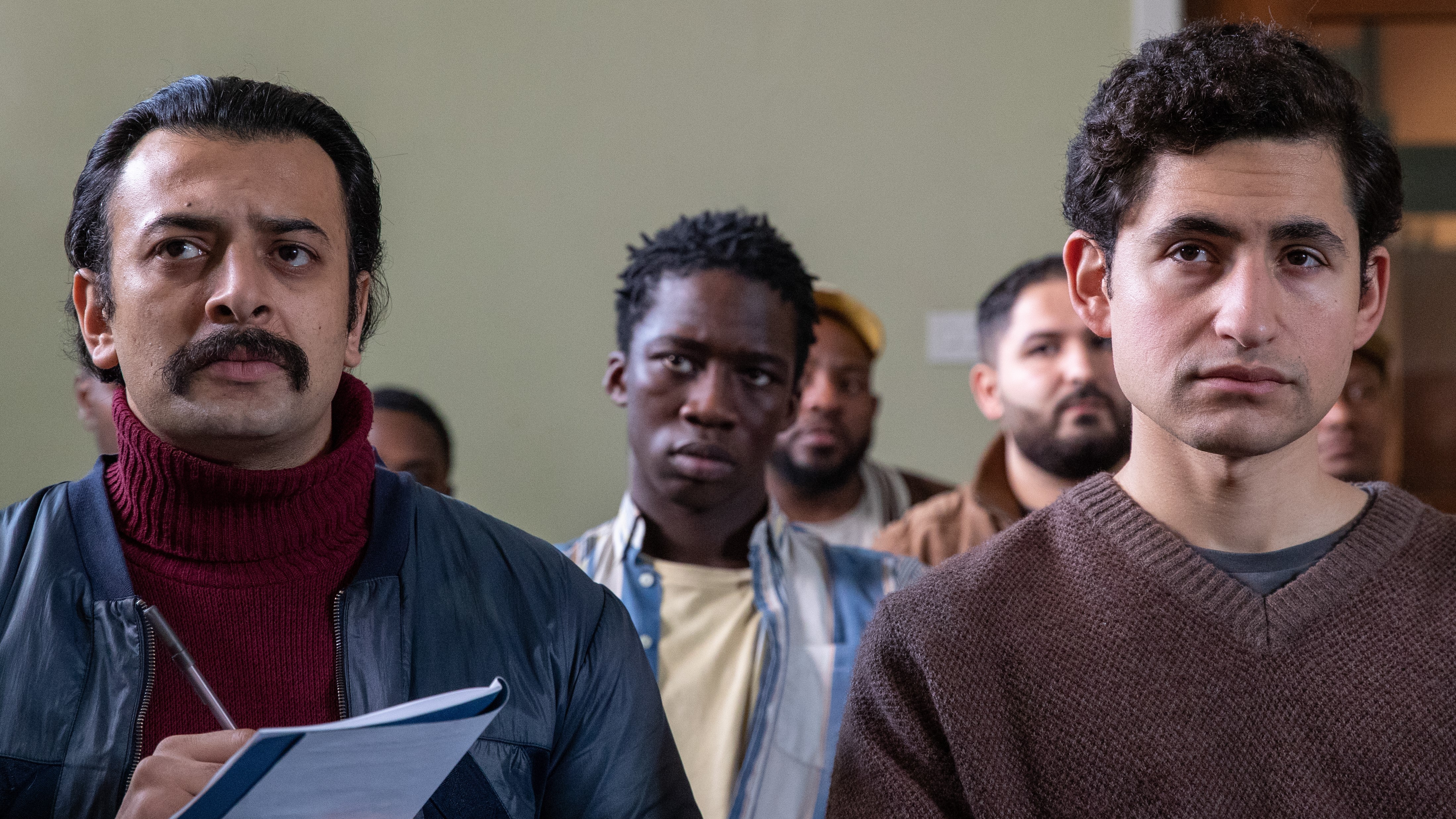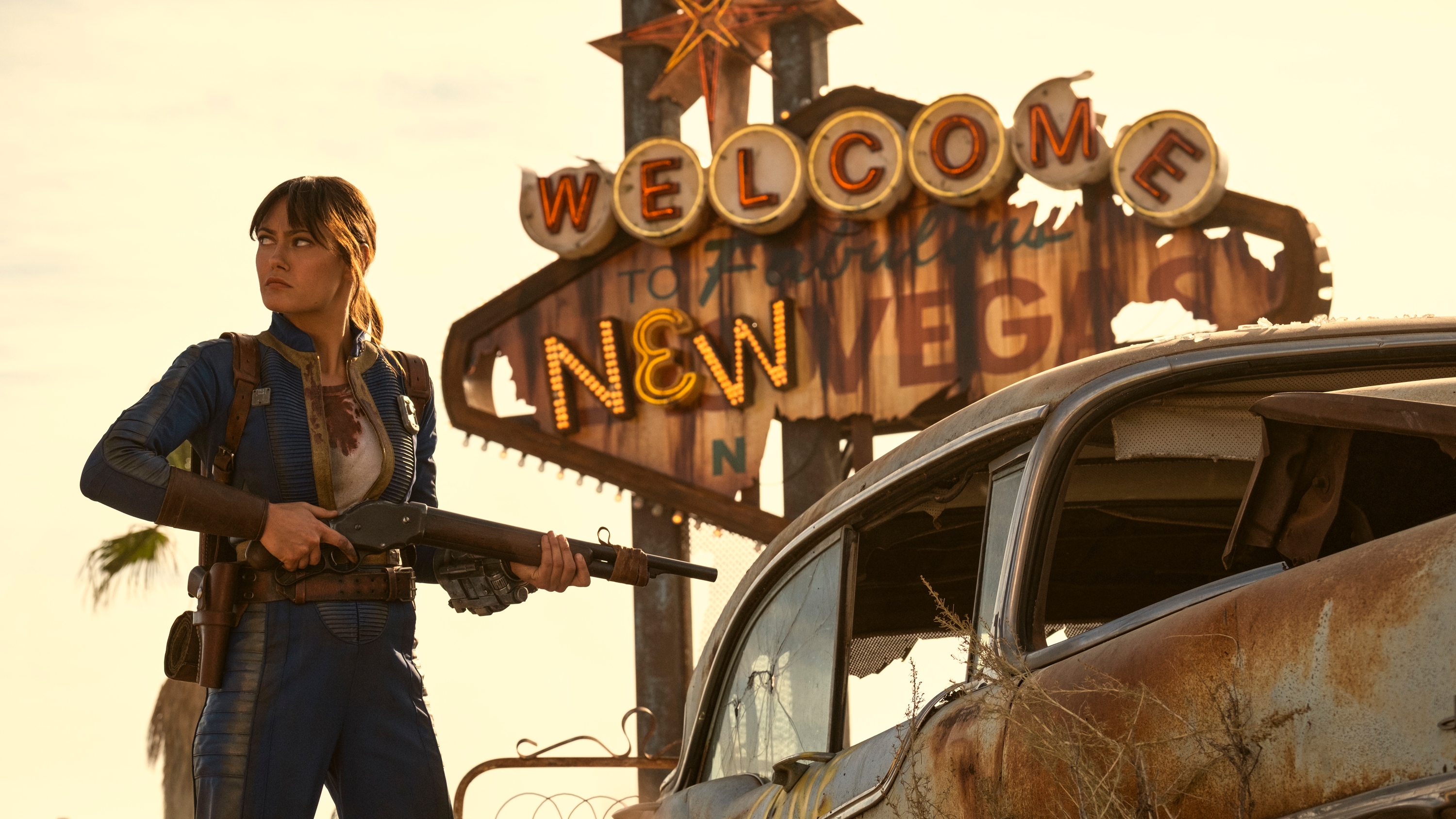What to Watch Verdict
'Limbo' is still a satisfying diversion in spite of its limitations.
Pros
- +
Excellent performance by Amir El-Masry.
- +
Moments of hilariously deadpan dialogue.
- +
Gorgeous cinematography reminiscent of Wes Anderson.
Cons
- -
Despite functioning very well as a character study, it doesn't have a whole lot to say about refugee lives beyond the obvious.
Limbo is currently only available to watch in theaters (as of April 30, 2021). Due to the COVID-19 pandemic, we recommend checking it out at your local drive-in. If one isn’t available, please be sure to check out state and CDC guidelines before watching in an enclosed space.
Limbo is as much a film about purgatory as the title would imply, a look at the lives of refugees that strips away the political circumstance of their flights in favor of examining their experiences as they await asylum. But “limbo” is perhaps the more farcical choice of phrase referring to a state between one world and the next, and writer-director Ben Sharrock seems interested in highlighting the absurdity of being a stranger in a strange land, with arbitrary barriers keeping one from making a new home or leaving the old one behind. This makes for a darkly funny film that never completely drops the gravity of what it portrays.
We accompany a Syrian refugee named Omar (Amir El-Masry) as he awaits confirmation of his asylum request in a remote Scottish village. Always carrying around a coffin-shaped case for his oud, an instrument he is unable to play with his hand in a pink cast, Omar blankly tolerates the condescension of classes meant to teach him and his fellow refugees the proper etiquette for navigating Western society, only for more overtly racist conversations to dominate his time with other white locals. His only begrudging comfort is his Afghan roommate Farhad (Vikash Bhai), whose Freddy Mercury mustache belies an appreciation of music that he encourages Omar to rediscover in himself.
Sharrock’s film immediately recalls the work of Wes Anderson, with dollhouse cinematography in a 4:3 frame, making for compositions that precisely engage the viewer across multiple planes but always with a central focus. The influence is also reflected in the film’s sense of humor, which is uniformly deadpan as Omar’s non-reactions to increasingly absurd encounters and scenarios make for awkwardly hilarious social faux pas. Omar himself is never the focus of ire; he is a fish out of water, for sure, but the gaze is more that of a fish being unamused by the confrontations of land predators who don't know what to make of him. However, that doesn't mean there isn't room for the refugees to engage in sitcom antics with one another, which speaks to Omar’s predominant window into the lives of Westerners: bootleg DVDs of Friends.
Through Omar’s eyes, the routines and insular lack of community of this Scottish village is alien, yet he and his refugee family of circumstance are constantly stared at and judged for their countries of origin, as poorly as the locals seem to be at identifying just which countries those might be. This speaks to a darker undercurrent to Omar’s journey, for while he has clearly come from wartorn tragedy, leaving his parents behind and only speaking to them on an isolated payphone, his personal crisis is over how he is meant to be himself in a country that has already independently decided who he is. As the specter of a talent show looms over the film’s final act, the dour exploration of self gradually strips away the absurdity of Omar’s world to reveal the underlying tragedy. This does cause the film’s back half to drag a bit compared to the snappy pace of the front, but Amir El-Masry invests Omar with a shocking amount of emotional depth, despite wearing a stonefaced frown for most of his screentime.
However, there is an undercurrent of questionability to how Sharrock opts to write his racist villagers as ultimately benign in their brazen ignorance, though he does effectively explore the impact of watching immigrants uprooted by deportation. Yet stripping his refugees’ experiences of political specificity fails to acknowledge the full realities of their lives beyond the momentary and superficial. Limbo is using its comedic aspects to make a point, but it feels like a point made for the benefit of a primarily white audience, a recognition of the struggles of the displaced that doesn’t dive any deeper than someone socially conscious enough to seek this film out would already be aware of.
Limbo is still a satisfying diversion in spite of its limitations. There are moments of laugh-out-loud inanity sprinkled throughout a film that manages to be both incisive and heartbreaking, making for a film that’s enjoyable if not exactly specifically memorable. Its substance eventually overtakes its style, but that might be entirely intentional, and the film’s final moments are well worth the investment. Purgatory may be an absurd place to stay, but the ways it forces growth might prepare you for the next step in the journey of life.
The latest updates, reviews and unmissable series to watch and more!
Limbo opens in theaters on April 30, 2021.
Leigh Monson has been a professional film critic and writer for six years, with bylines at Birth.Movies.Death., SlashFilm and Polygon. Attorney by day, cinephile by night and delicious snack by mid-afternoon, Leigh loves queer cinema and deconstructing genre tropes. If you like insights into recent films and love stupid puns, you can follow them on Twitter.


